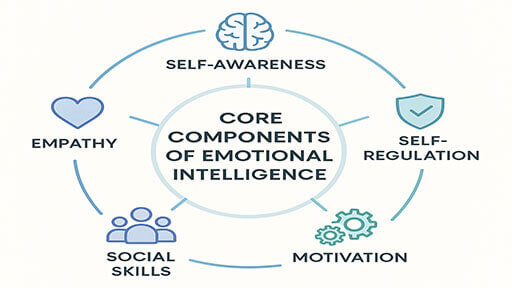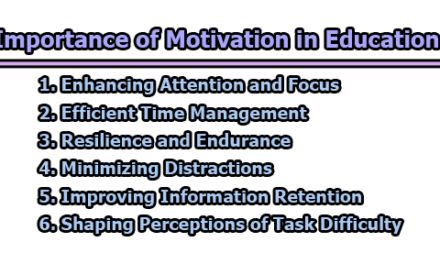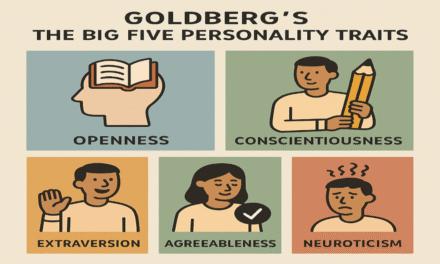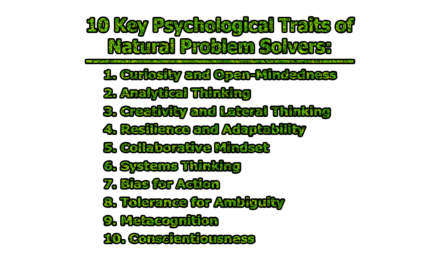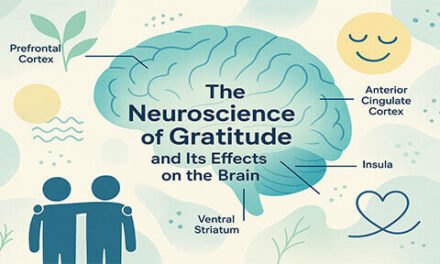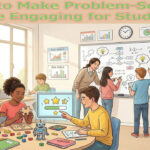Core Components of Emotional Intelligence:
In every part of life, from our closest relationships to our professional environments, emotions play a powerful role in shaping how we think, act, and connect with others. Emotional intelligence, often described as the ability to recognize, understand, and manage both our own emotions and the emotions of others, is increasingly seen as just as important as traditional measures of intelligence. Unlike IQ, which remains relatively fixed, emotional intelligence can be developed and strengthened throughout life. It is not only about being in touch with feelings, but also about using that awareness to guide decision making, resolve conflict, build stronger relationships, and maintain resilience in the face of stress. Whether in leadership, teamwork, education, or personal growth, emotional intelligence provides the tools we need to navigate the complexities of human interaction with greater empathy, adaptability, and confidence. In the rest of this article, we will explore the core components of emotional intelligence with additional capacities, and practical strategies.
Core Components of Emotional Intelligence:
The foundation of emotional intelligence is built on five core components that shape how we manage ourselves and our relationships with others.
Self-awareness is the starting point. It means recognizing your own emotions and understanding how they influence your behavior. For example, someone preparing to give an important presentation might notice their anxiety rising. Instead of ignoring it, they acknowledge, “I am nervous because I care about doing well.” This recognition makes it easier to respond calmly. People with strong self-awareness also understand their strengths and weaknesses, which allows them to seek support when needed rather than struggling in silence.
Self-regulation, sometimes called self-management, builds on awareness. It involves controlling emotional impulses and responding thoughtfully rather than reactively. Imagine a manager who receives critical feedback. Instead of snapping defensively, they pause, reflect, and respond with openness. Self-regulation also shows in adaptability, such as when plans change suddenly and someone finds a positive alternative rather than becoming stuck in frustration.
Motivation within emotional intelligence goes beyond external rewards. It is about an inner drive to grow, improve, and pursue goals because they matter personally. A student who studies late into the night out of genuine curiosity, or an athlete who keeps training after setbacks because they love the sport, are examples of intrinsic motivation. This type of drive fuels persistence, resilience, and a growth mindset.
Empathy and social awareness reflect the ability to step into someone else’s shoes and to notice broader social dynamics. A friend who notices you are unusually quiet and gently asks how you are doing shows empathy. In professional life, social awareness allows a leader to notice when a new team member feels excluded and to take action to include them. These skills help people connect deeply and respectfully with others.
Social skills bring everything together. They include the ability to communicate clearly, resolve conflicts, collaborate, and lead with emotional understanding. A person with strong social skills does not ignore disagreements but listens carefully, acknowledges the other person’s concerns, and works toward compromise. In leadership, social skills are the foundation of inspiring others and building lasting trust.
Additional Related Capacities:
Beyond the core components, emotional intelligence involves other capacities that make it richer and more adaptable to real-life situations.
Understanding emotions goes beyond recognizing them to interpreting their meaning. A parent might notice their child is not simply irritable but anxious about school. Recognizing what lies beneath the emotion helps in responding effectively.
Conflict resolution is another essential capacity. Instead of focusing on winning an argument, emotionally intelligent conflict resolution focuses on listening, acknowledging different viewpoints, and finding common ground. This approach turns disagreements into opportunities for cooperation.
Managing difficult emotions and stress management are closely connected. Emotions like anger, sadness, or anxiety cannot be eliminated, but they can be managed. For example, someone stuck in traffic can choose to breathe deeply and shift their perspective rather than arriving at their destination upset.
Accepting emotions and practicing mindfulness deepen self-awareness. Instead of suppressing sadness after a loss, acknowledging and allowing space for it helps healing. Mindfulness encourages noticing emotions without judgment and responding with calmness rather than impulsivity.
Decision-making benefits greatly from emotional intelligence. Facts matter, but so do feelings. A professional choosing between job offers might weigh salaries and benefits, but also reflect on which role feels like a better personal and cultural fit. Integrating both logic and emotion often leads to wiser choices.
Recognizing how others feel requires attentiveness to nonverbal cues such as tone of voice or body language. This skill strengthens trust and improves both personal and professional relationships.
Adaptability and a growth mindset make it possible to thrive in changing environments. When unexpected challenges arise, emotionally intelligent individuals see them as opportunities to learn rather than as threats.
Finally, achievements and openness to feedback reflect maturity in emotional intelligence. Celebrating progress rather than perfection builds motivation, while welcoming constructive feedback shows a willingness to grow and improve.
Practical Strategies to Cultivate Emotional Intelligence:
Although some people appear naturally more emotionally intelligent, these abilities can be developed through deliberate practice.
Conflict resolution and leadership can be cultivated by practicing active listening and encouraging open dialogue. A leader who gives each team member the chance to express concerns and then summarizes what was said demonstrates respect and fairness.
Stress and emotion management require tools such as deep breathing, journaling, or reframing situations. By choosing to see difficulties as opportunities or slowing down before reacting, people can prevent negative emotions from overwhelming them.
Mindfulness and emotional acceptance provide space to respond instead of react. Taking a few moments each day to check in with one’s emotions helps develop calm awareness, even in stressful times.
Asking for feedback is another powerful strategy. Instead of waiting for criticism, actively seeking input from trusted colleagues or friends shows openness. Reflecting on feedback later, rather than reacting defensively in the moment, allows for personal growth.
Decision-making becomes stronger when emotions are acknowledged alongside logic. Before making an important choice, pausing to ask, “What do the facts say?” and “How do I feel about this?” integrates both sides of intelligence.
Recognizing how others feel can be practiced by observing carefully and asking gentle questions. Noticing a friend’s quietness and checking in can strengthen trust and support.
Finally, adaptability and growth mindset can be developed by viewing change as a chance to learn. When faced with setbacks, reframing the experience as part of growth encourages resilience and perseverance.
In conclusion, emotional intelligence is not a single skill but a collection of interconnected abilities that shape the way we understand ourselves, relate to others, and respond to life’s challenges. At its heart are self-awareness, self-regulation, motivation, empathy, and social skills, but it is enriched by additional capacities such as conflict resolution, stress management, mindfulness, adaptability, and openness to feedback. Cultivating these abilities through practical strategies allows us to manage emotions more effectively, make wiser decisions, and build stronger, more supportive relationships.
In a world that constantly presents both opportunities and difficulties, emotional intelligence helps us stay balanced, connected, and resilient. It is a lifelong practice, not about eliminating emotions but about embracing them as valuable guides. By nurturing emotional intelligence, we not only improve our own lives but also contribute to healthier workplaces, stronger communities, and more compassionate relationships.
Frequently Asked Questions (FAQs):
Can emotional intelligence really be learned or is it something people are born with?
Emotional intelligence can absolutely be developed. While some people may naturally be more attuned to emotions, research shows that skills such as self-awareness, empathy, and emotional regulation can be strengthened through practice and reflection over time.
How is emotional intelligence different from regular intelligence?
Regular intelligence measures cognitive abilities like problem-solving, reasoning, and memory. Emotional intelligence focuses on understanding and managing emotions in ourselves and others. While both are valuable, emotional intelligence is particularly important for building relationships, navigating social situations, and succeeding in leadership or teamwork.
Why is emotional intelligence important in the workplace?
Workplaces rely heavily on human interaction. People with high emotional intelligence manage stress effectively, collaborate well with colleagues, resolve conflicts constructively, and adapt to change smoothly. Leaders with strong EI inspire trust, motivate teams, and create healthier, more productive work environments.
What are some practical ways to improve emotional intelligence in everyday life?
Daily practices such as mindfulness, journaling about your feelings, pausing before reacting in stressful situations, observing body language, and asking for constructive feedback can all help build emotional intelligence. Consistency in these practices gradually strengthens your EI skills.
Is emotional intelligence linked to mental health?
Yes. Emotional intelligence allows individuals to handle stress, process difficult emotions, and maintain supportive relationships. People who accept their emotions rather than suppressing them tend to experience greater resilience, reduced anxiety, and overall improved mental well-being.
How does emotional intelligence influence decision making?
Emotional intelligence helps integrate emotions with rational thinking. Recognizing how feelings influence choices allows individuals to make more balanced and thoughtful decisions in both personal and professional contexts.
Can emotional intelligence make someone a better leader?
Absolutely. Leaders with high emotional intelligence can empathize with their teams, manage their own emotions under pressure, and communicate effectively. This leads to stronger relationships, higher team morale, and improved overall performance.
How can emotional intelligence help in personal relationships?
Emotional intelligence promotes understanding, patience, and empathy in relationships. By recognizing your own emotions and those of others, you can respond thoughtfully rather than react impulsively. This strengthens trust, reduces conflicts, and deepens emotional connection with friends, family, or partners.
Does emotional intelligence improve with age?
It can. Life experience often provides opportunities to practice empathy, self-awareness, and emotional regulation. However, without conscious effort to develop these skills, emotional intelligence may not grow automatically. Deliberate practice is key at any age.
Can technology help in developing emotional intelligence?
Yes, in some ways. Apps for mindfulness, journaling, or mood tracking can support self-awareness and stress management. Online courses and virtual coaching programs can provide guidance on developing social skills, empathy, and leadership abilities. However, real-world interactions are essential to fully practice and strengthen emotional intelligence.
References:
- Bar-On, R. (2006). The Bar-On model of emotional-social intelligence (ESI). Psicothema, 18(Suppl.), 13–25.
- Copley, L. (2023). Loving you is hurting me: A new approach to healing trauma bonds and creating authentic connection. Grand Central Publishing/Hachette.
- Damasio, A. R. (1994). Descartes’ error: Emotion, reason, and the human brain. P. Putnam’s Sons.
- David, S. (2016). Emotional agility: Get unstuck, embrace change, and thrive in work and life. Avery.
- Dweck, C. S. (2006). Mindset: The new psychology of success. Random House.
- Goleman, D. (1995). Emotional intelligence: Why it can matter more than IQ. Bantam Books.
- Goleman, D. (1998). Working with emotional intelligence. Bantam Books.
- Goleman, D., Boyatzis, R., & McKee, A. (2002). Primal leadership: Realizing the power of emotional intelligence. Harvard Business School Press.
- Gross, J. J. (1998). The emerging field of emotion regulation: An integrative review. Review of General Psychology, 2(3), 271–299. https://doi.org/10.1037/1089-2680.2.3.271
- Ickes, W. (1997). Empathic accuracy. Guilford Press.
- Kabat-Zinn, J. (2003). Mindfulness-based interventions in context: Past, present, and future. Clinical Psychology: Science and Practice, 10(2), 144–156. https://doi.org/10.1093/clipsy.bpg016
- Lazarus, R. S., & Folkman, S. (1984). Stress, appraisal, and coping. Springer.
- London, M. (2003). Job feedback: Giving, seeking, and using feedback for performance improvement. Lawrence Erlbaum Associates.
- Mayer, J. D., & Salovey, P. (1997). What is emotional intelligence? In P. Salovey & D. J. Sluyter (Eds.), Emotional development and emotional intelligence: Educational implications (pp. 3–31). Basic Books.
- Ryan, R. M., & Deci, E. L. (2000). Self-determination theory and the facilitation of intrinsic motivation, social development, and well-being. American Psychologist, 55(1), 68–78. https://doi.org/10.1037/0003-066X.55.1.68

Library Lecturer at Nurul Amin Degree College

